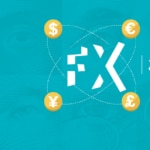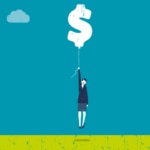The foreign exchange market: Exchange rate systems
An exchange rate system, also called a currency system, establishes the way in which the exchange rate is determined, i.e., the value of the domestic currency with respect to other currencies. Choosing the currency system is a pivotal element of the economic policy adopted by a country’s government. The currency system has significant repercussions on the flexibility of the exchange rate and on other instruments of economic policy.

In currency markets we can talk, in broad terms, about three types of currency systems:
- Fixed exchange rate systems; where the price of a currency is “fixed” with respect to another currency, a pool of currencies, or a precious metal such as gold.
- Systems of floating exchange rates; where the price of a currency with respect to other currencies is set by the market’s demand and supply forces. In this case, the exchange rate is said to have a clean float (variability in price).
- Semi-fixed or mixed exchange rate systems (with bands, “pegs”, etc…) where the variation of a currency’s price or free fluctuation stays within specific limits.

Depending on the exchange rate system applied, changes in the price of a currency with respect to another can be defined in the following terms:
Floating system
- Appreciation: the increase in the value of one currency compared to another (e.g. the euro appreciates against the dollar when its value increases from 1.06 dollars per euro to 1.07 dollars per euro).
- Depreciation: the loss of value of one currency compared to another (in the previous example, the euro appreciates while the dollar depreciates; more dollar units are required to purchase a single euro).
Fixed or semi-fixed currency systems
- Devaluation: the decline in the value of a currency resulting from a decision by the central bank (e.g. the August, 2015 decision by China’s central bank, the PBOC, to devaluate the country’s currency).
- Revaluation: the increase in value of a currency due to a decision by its central bank (e.g. on January 15, 2015, Switzerland’s Central Bank decided to scrap the Swiss Franc’s 1.2000 francs per euro cap, which it had set in September 2011. As a result of this decision, the franc’s value jumped from about 1.2000 francs per euro to about 0.8000 francs per euro.